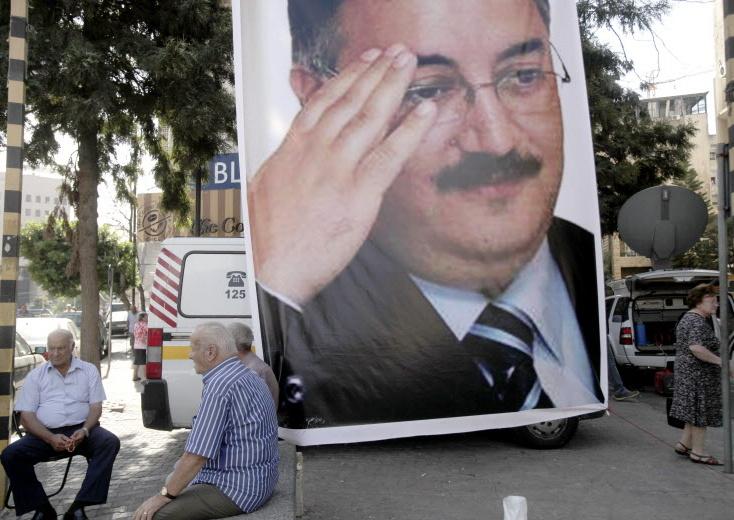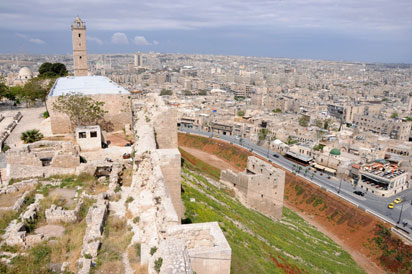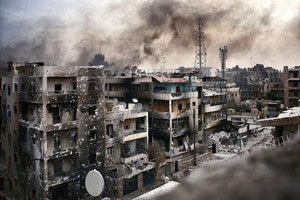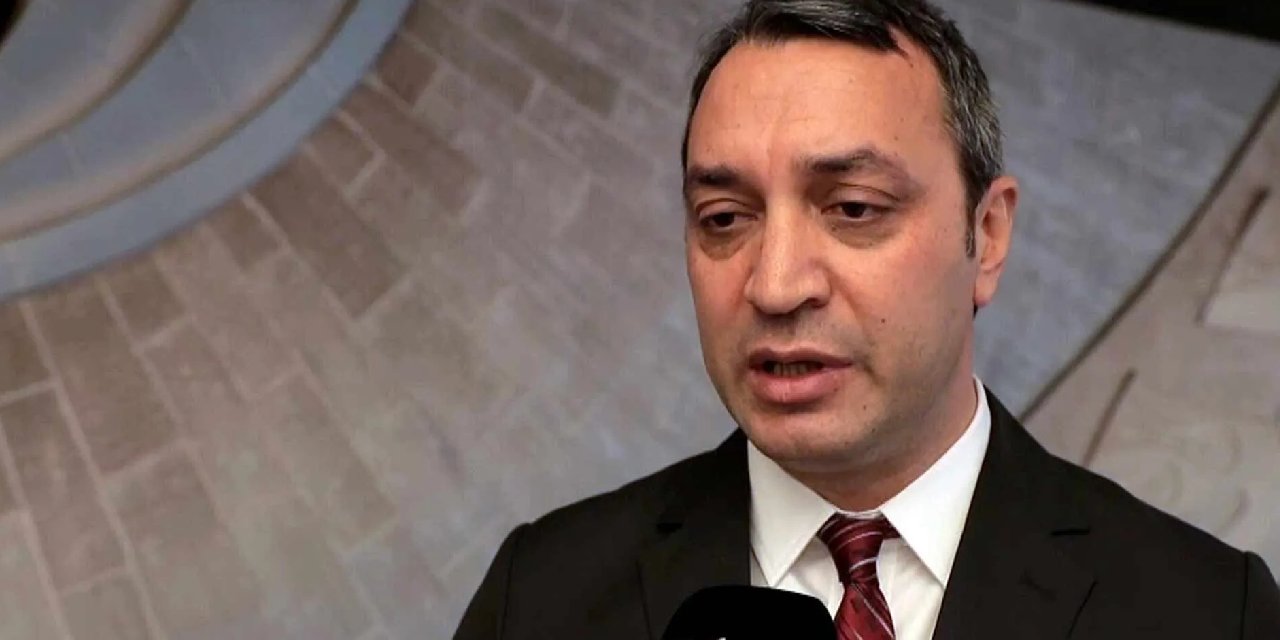If the assassination of Wisam al Hasan perpetrated by the Syrian government or its Lebanese allies, then its timing is set to a date that the international community and regional forces will not directly condemn them because they have expectations concerning the coming ceasefire.
VAHAKN KESHIHIAN
vahaknk@agos.com.tr
In 2005 February 14th, Rafic Hariri was assassinated with a car bombing, then the former prime minister of Lebanon, and the richest person in the country by far, and one of the most influential politicians of the Middle East. The months that followed were not going to be easy for anyone in the region, and the years that followed either. And today, after the assassination of Gen. Brig. Wisam Al Hasan, the future, again, is not very promising.
The Exit of Syrian army from Lebanon
The years between 2000-2004 imposed new realities on the Middle East. American invasion of Iraq, regime change in Syria, regime change in Turkey, Israeli withdrawal from Lebanon and ascendance of Hamas in Palestine as an islamist government. These new realities with no doubt had their effects on the Middle East balance, and the result was shuffling of papers. The assassination of Rafic Hariri led to the withdrawal of Syrian troops from Lebanon and the formation of an anti-Syrian pro-Western government in it. The period between 2005-2008 must have been the hardest for Hezbollah, the militant pro-Iranian group that operates as a political party in Lebanon. The other group, the Future movement, which was founded by Rafic Hariri was now the government and was able to counter many of Hezbollah’s strength positions. During that time, to balance the military power of Hezbollah there was plans to strengthen the national army and put it in the face of “all armed groups” but mainly Hezbollah. This plan was not welcomed enthusiastically as many of the soldiers of the army are Hezbollah sympathizers, if not direct supporters. While Mr. Hariri still in power, he had already put the foundations for a unit inside the Internal Security Forces (ISF) of Lebanon, that would be charged with specific tasks and having a different command structure that would benefit from the independence ISF from the army, and from the general security forces. This unit was going to be called the Information Branch, and over the years was going to be strengthened by internal, regional and international support, including direct weapon and machinery transfer from the United States.
The New Balance in the Middle East
However Middle East changed rapidly between 2005 and 2008. While Syria was able to break its international blockade through Turkey, on the one hand it became clear for US that there is no solution in Iraq without Iran, meanwhile Israel lost a war with Hezbollah.
In May 2008, then still in power the Future government headed by Fouad Siniora pushed for a law that would illegalize the private communication lines of Hezbollah, and by a separate law (law or decree??) would change the head of the security of the airport from a Hezbollah supporter to a Future supporter. These two regulatory measures were seen illegitimate by Hezbollah and its allies, especially the Syrian Socialist National Party (SSNP). Hezbollah furious of the ongoing pressure on it, used its power to establish a de facto reality on Lebanon by opening several armed fronts, cutting main roads and fighting all over Beirut to impose the cancellation of the mentioned two laws. It was successful, and the country went to Doha, Qatar to create a new scheme of power sharing and understandings between the different fractions. The outcome of Doha was that in 2009 elections, Hezbollah and its allies formed the new government putting Lebanon in a different track than that of the 2005-2009 Future government. But during that period, the Future movement along with its internal and external supporters was keen to develop deterrence factors that would be able to bring into account the ISF. The development of the organization and management of this unit, its weapons and tactics, as well as its missions were headed and guided by Gen. Brig. Wissam Al Hassan from the first day to his assassination on 19th of October 2012.
The Information Branch
Al Hasan's assassination comes after months of intensified attention to both his person and his managed Information Branch. The news about the branch was first heard when it spotted several breaches by Israel into Lebanon through collaborators, that were arrested by the Branch missions.
The first incidence of a clash was between Intelligence Branch's units and the SSNP members. The units were in a surveillance mission in Hamra area, near the SSNP headquarters. Hamra is considered to be a stronghold of SSNP, and during the mentioned May 2008 events, it had showed that it is the real power on the ground in this strategically and economically significant area. The incident between the Branch and the SSNP grew as the SSNP members confiscated a pistol that belonged to Branch unit. The response of the Branch was that it surrounded the SSNP headquarters, and deployed units all over Hamra for the next day until the SSNP was forced to give back the pistol and hand two of its members that were demanded by the Branch. The deployment and its successful end was an act of showing force in Hamra area, and show off of arms and its mechanized units. This act had its clear message to everyone, that the Branch has transformed itself from a task force to an armed group that can impose itself with its power.
Gen.Brig. Al Hasan's other success moment was when the Branch implemented the arrest of former Minister and MP Michael Samaha, the most connected person to Syria in Lebanon. The arrest was carried out under the accusation that Samaha was involved in smuggling of arms and bombs that would create chaos in Lebanon. Mr. Samaha’s arrest was complemented by direct accusation of Buthayna Shaaban, the presidential advisor of Syria, who is a key personality in the regime. Gen. Brig. Al Hasan was now enlarging his conflict circle to include Damascus itself.
The clash with the SSNP and the arrest of Samaha were direct influence on the political arena of Lebanon. Acts like these would have been impossible if the regime in Syria was still in its full shape. But it was apparent that from the first days of its creation to the assassination day, the Information Branch was an anti-syrian circle in Lebanon, and was not hesitant in showing that.
Timing and Setting
Coming to the assassination day, one week ahead of it, Lakhdar Ibrahimi (the UN Sec. Gen. special envoy) announced his plans of ceasefire in Syria in occasion of the Al Adha holidays. The assassination of Wisam al Hasan if it is perpetrated by the Syrian government or its Lebanese allies, then its timing is set to a date that the international community and regional forces will not directly condemn them because they have expectations concerning the coming ceasefire. The ceasefire, if it will be fully implemented it is thought that it will be in the advantage of the Free Syrian Army, so they will not trigger a wave against the Syrian regime hoping that it will agree on the ceasefire. The Syrian regime in its turn, will try to get as much as back on the ground until entering the ceasefire, and trying to eliminate as much as possible above the ground.
Yet one more factor should be taken into consideration. Gen. Brig. Al Hasan was not an important public figure on the moment of his assassination. He was not a political leader in line with the political leaders that have clientele networks and are part of the Lebanese equilibrium. His name was not a public name, although he was known to be the bodyguard of Rafic Hariri that escaped the bombing by chance. This is not to say that his assassination was not an important event, but rather to point that other than serving direct intentions, it is also a message. The Prime Minister Najib Al Miqati stated several times that the assassination was aimed at shaking the Lebanese internal peace, and stands firm in the face of the resignation calls. The fact is that nobody wants Najib Miqati to resign, not even the Saudis or the French or the Americans. All the mentioned stated their support to Mr. Miqati when they sent their ambassadors to meet him on Monday, the next day of the funeral events, that took the shape of a failed forced entry to the government’s offices.
An unprecedented western support was shown to Mr. Miqati's government, and this can be explained by that the western powers are not ready to fight the Syrian regime in Lebanon, maybe they think that was its aim, to drag Lebanon to the conflict, and to export the conflict to Lebanon.
Gen. Brig. Al Hasan’s assassination was a very sad incident on the Lebanese spectrum, it was directed basically on the Information Branch, but the Information Branch was not yet grown up enough so that its commander’s assassination would bring down the Hizbullah-led government of Lebanon that enjoys wide Sunni and international support. Yet, his absence is important in the time when the Syrian regime is fighting all over, inside and outside the country, and if he can disrupt the influx of weapons from Lebanon, he would be in an advantageous position. His assassination is a message to the Lebanese and to everybody in the region and the world that despite everything still the enemies of the Syrian regime can suddenly get killed in the Middle East.





